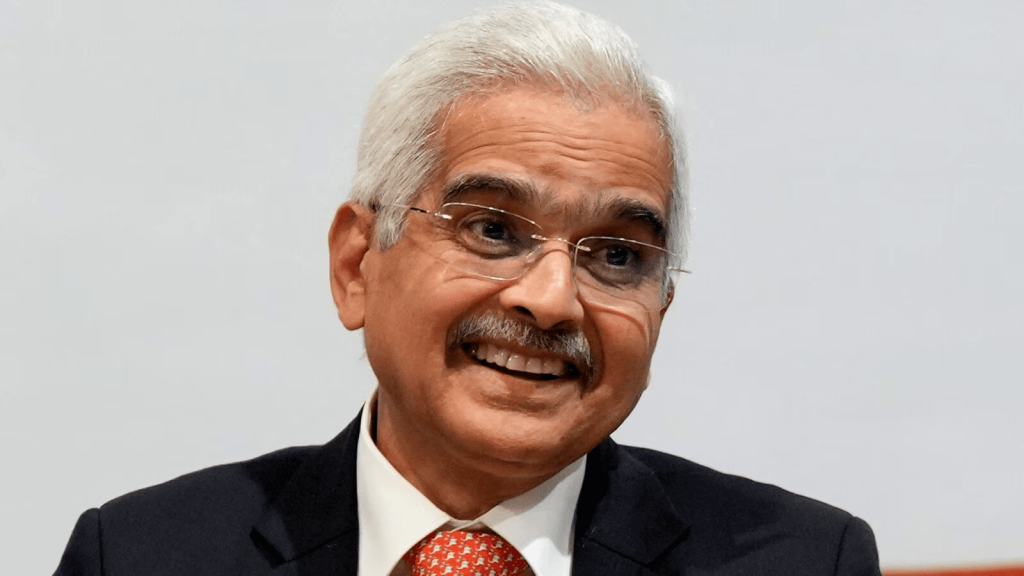Inflation. It’s a word that can strike fear into the hearts of both individuals and businesses. It erodes purchasing power, disrupts budgets, and creates uncertainty. In India, the Reserve Bank of India (RBI) is tasked with the crucial responsibility of managing inflation and keeping it within a targeted range. But this is not an easy task. As RBI Governor Shaktikanta Das recently pointed out, navigating this path is a delicate balancing act, fraught with challenges and potential consequences for any missteps.

The Delicate Dance: Balancing Growth and Price Stability
The RBI’s primary objective is to maintain price stability, aiming for a medium-term target of 4% inflation with a +/- 2% tolerance band. However, achieving this goal often involves trade-offs. Measures to curb inflation, like raising interest rates, can dampen economic growth. Conversely, policies that stimulate growth can inadvertently fuel inflation. This delicate dance between price stability and economic growth is a constant challenge for the RBI.
Challenges on the Horizon
Governor Das highlighted several key challenges that complicate inflation management:
- Global Factors: India’s economy is not immune to global trends. Rising commodity prices and supply chain disruptions due to geopolitical events can push domestic inflation higher.
- Weather Events: Unpredictable weather patterns, like droughts or floods, can disrupt agricultural production and lead to food price spikes.
- Wage-Price Spiral: If rising inflation leads to higher wages, businesses may pass on these costs through price increases, creating a vicious cycle.
The Cost of Missteps: Potential Consequences
Any missteps in managing inflation can have serious consequences for the Indian economy:
- Eroded Purchasing Power: High inflation reduces the value of your money, making it harder to afford basic necessities. This disproportionately affects low-income households.
- Investment Discouragement: Unpredictable inflation discourages businesses from investing, hindering economic growth and job creation.
- Erosion of Confidence: High inflation creates economic uncertainty, which can lead to a decline in consumer spending and overall economic activity.

The Importance of Getting it Right
The RBI’s role in managing inflation is crucial for India’s economic well-being. Here’s why getting it right matters:
- Stable Prices: Predictable and low inflation allows for better financial planning for individuals and businesses, promoting economic stability.
- Investment Confidence: A stable inflationary environment encourages investment, which is essential for long-term economic growth.
- Improved Living Standards: By controlling inflation, the RBI helps maintain purchasing power and improve living standards for all Indians.
What You Can Do to Manage Inflation
While the RBI steers the ship on a national level, individuals can also take steps to manage the impact of inflation on their personal finances:
- Create a Budget: Track your income and expenses to identify areas where you can cut back.
- Prioritize Needs: Focus spending on essential needs like food, shelter, and healthcare.
- Explore Investment Options: Consider investing in assets that can potentially outpace inflation, such as stocks or mutual funds (consult a financial advisor for guidance).
- Reduce Debt: High-interest debt becomes more burdensome during inflation. Focus on paying down existing debt to free up your finances.
Conclusion: A Collaborative Approach to Taming the Inflationary Beast
The RBI’s stance on inflation management is a clear call for vigilance. While they hold the reins on monetary policy, taming inflation requires a collaborative effort from various stakeholders. Here’s how we can navigate this challenge together:
From the RBI’s Perspective:
- Data-driven Decisions: Continuous monitoring of global trends, domestic factors, and inflationary pressures is crucial. This allows for timely adjustments to monetary policy tools like interest rates and open market operations.
- Communication is Key: Transparent communication with the public about inflationary risks and policy decisions fosters trust and understanding.
From Businesses:
- Productivity and Efficiency: Focusing on improving operational efficiency and productivity can help businesses absorb some cost increases without resorting to price hikes.
- Responsible Pricing: Businesses can play a vital role in mitigating inflation by avoiding excessive price hikes that can trigger a wage-price spiral.
From Individuals:
- Financial Literacy: Understanding inflation and its impact on personal finances empowers individuals to make informed spending and investment decisions.
- Smart Spending Habits: Prioritizing needs over wants, exploring cost-effective alternatives, and leveraging loyalty programs can help manage rising costs.
The Role of Financial Assistance Companies:
Financial assistance companies can play a crucial role in these times by offering:
- Debt Management Programs: Helping individuals consolidate and manage high-interest debt, freeing up finances to weather inflationary pressures.
- Financial Planning Guidance: Providing personalized advice on budgeting, saving, and investing strategies to navigate inflationary periods.
- Access to Financial Products: Facilitating access to financial products like savings accounts with inflation-adjusted interest rates or investment options that can potentially outpace inflation.
By working together – the RBI with its monetary policy tools, businesses with responsible pricing practices, individuals with informed financial decisions, and financial assistance companies providing guidance and resources – we can mitigate the negative impacts of inflation and build a more resilient Indian economy. Remember, inflation management is not just a top-down approach; it requires a collective effort from all stakeholders to ensure a stable and prosperous future for all.
The final takeaway should be one of empowerment. While inflation presents challenges, by understanding the situation and taking proactive steps, individuals and businesses can navigate these economic realities with greater confidence.
